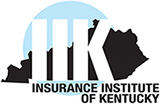IIK’s 2023 Agenda Items
HB 12: Hands-free Cell Phone Use
Distracted Driving is a serious problem in Kentucky and across the nation. According to the National Highway Traffic Safety Administration (NHTSA), distracted driving claimed 3,142 lives in 2019. Specifically for KY, according to the 2020-24 Strategic Highway Safety Plan, 843 of the 3,733 highway fatalities in Kentucky between 2014 and 2018 involved distracted driving – 22 percent of all deaths. The report also states that these numbers likely understate the problem.
Distractions while driving come in many forms, but the most dangerous distractions are those which take a driver’s eyes off the road – reading an email, dialing a number, or maybe even checking out a video. HB 12 would address that form of distraction by requiring the hands-free use of cell phones while driving. Please see here for a much more detailed explanation of HB 12.
HB 102: Delivery Network Companies
In November 2022 the National Conference of Insurance Legislators (NCOIL) passed a model act dealing with insurance issues related to Delivery Network Companies (DNCs). These are companies like DoorDash, Uber Eats, and Buckle. The DNC model was sponsored by former Rep. Bart Rowland (KY).
The draft DNC model has five main sections.
- Section One is the definitions that capture the various business models in the delivery network space.
- Section Two acknowledges there may be existing federal or state laws governing the transport of certain types of materials, such as hazardous materials that have existing limitations or requirements in the law.
- Section Three lays out the insurance requirements and some terms on how insurance policies might interact with each other when there is a claim.
- Section Four includes the mandatory disclosures to drivers.
- Section Five is the express authority for personal auto insurers to exclude coverage for this type of activity if that’s what they want to do.
HB 135: Autonomous Vehicles
The Autonomous Vehicle Industry Association is pursuing model industry legislation in Kentucky to allow for the use of autonomous vehicles (AV) on Kentucky roadways. Some 19 states have passed this model legislation and another 10-12 states have some form of AV laws on the books.
This legislation is supported by much of the manufacturing and trucking industry in Kentucky, including Ford and GE, who want to use AV trucks on limited routes to only deliver goods from their supplier to their manufacturing plant. The other use for AV is in the shared economy space, operating driverless cars for taxis, limos, ridesharing, car sharing, or non-commercial deliveries.
The federal government oversees the design, construction, performance, and safety of vehicles via the Vehicle Safety Act and the National Highway Traffic Safety Administration. States regulate the operation of motor vehicles, such as the drivers, operation of the vehicle and traffic rules. NHTSA has issued guidance documents with best practices regarding how to test and operate AVs on public roads and established the Voluntary Safety Self-Assessment for the AV industry. In essence, NHTSA allows AV industry operators to self-certify the safety of their vehicles and does not require pre-approval to operate.
The model being adopted in the states has three primary pillars:
- Require that an AV achieve a minimal risk condition, which means an AV must be able to bring the vehicle to a stop and move over to the shoulder of a roadway.
- The AV must adhere to all traffic safety laws.
- AVs must comply with all federal laws, if and when the federal government issues additional standards.
The model requires operators to maintain insurance, at current state minimums, as well as maintaining requirements for commercial use, fleets, TNCs, etc. In addition, AV operators must submit to the state Transportation Cabinet and law enforcement their operation plans and interaction plans should an AV be involved in an accident.
